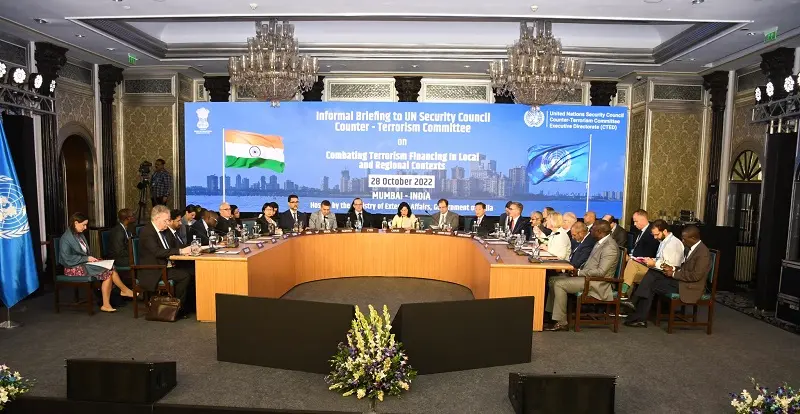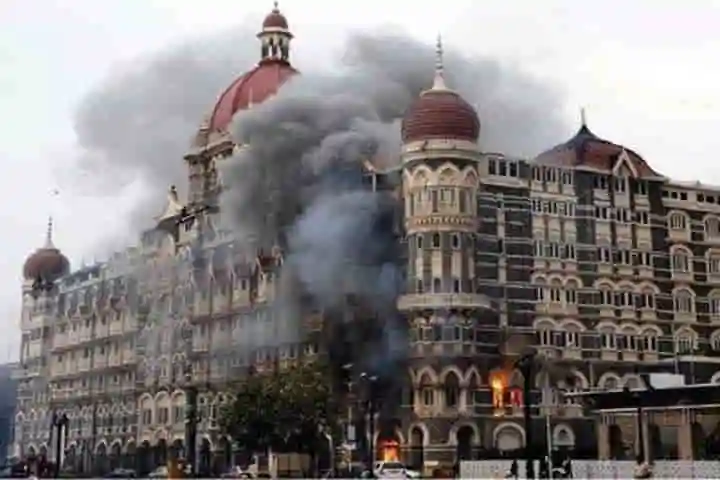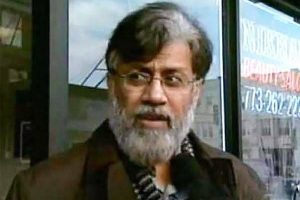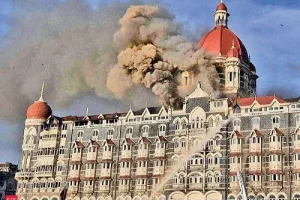In an unprecedented public expose at the Mumbai UN counter-terror meet, India on Friday revealed in detail Pakistan’s role in the 26/11 Mumbai terror attack by playing Pakistan-based terrorist Sajid Mir’s audiotape.
In the audio clip, he is heard directing the attack on Chabad House during Mumbai 26/11 terror attacks. Playing the audio clip, India presented undeniable evidence against Pakistan. The clip was played by a senior Intelligence Bureau officer, Pankaj Thakur at the United Nations Security Council (UNSC) Counter-Terrorism Committee (CTC) meeting at Taj Mahal Palace.
It exposed Sajid Mir directing terrorists from Muzaffarabad, Pakistan-occupied Kashmir where he is giving instructions to terrorists who were at Chabad House during Mumbai 26/11 terror attacks.
Thakur made this revelation in the presence of several foreign ministers and diplomats from over 15 countries.
Notably, Sajid Mir, one of India’s most wanted terrorists, is wanted for his involvement in the 2008 terrorist attacks in Mumbai, India.
“Beginning on November 26, 2008, and continuing through November 29, 2008, ten attackers trained by the Pakistan-based foreign terrorist organization Lashkar-e-Tayyiba (LeT) carried out a series of coordinated attacks against multiple targets in Mumbai, including hotels, cafes, and a train station, killing approximately 170 people. Six Americans were killed during the three-day attacks,” the FBI website reads.
Mir served as the chief planner of the attacks, directing preparations and reconnaissance, and was one of the Pakistan-based controllers during the attacks.
Shortly after the harrowing attack, CIA Station Chief met ISI Analysis Directorate Major General Akhtar and presented him with charts and communication intercepts that proved conclusively that the attack was carried out from Pakistan and had clear support from ISI.
Meanwhile, China, in recent months, has blocked several bids to designate several terrorists based in Pakistan. Beijing this month put on hold a proposal to list Talha Saeed, son of Lashkar-e-Taiba (LeT) chief Hafiz Saeed. This bid was moved by India and co-supported by the US, under the 1267 sanction regime.
It was the fifth time that China has blocked an India-US proposal in recent months, Lashkar-e-Taiba member Shahid Mahmood in October, Lashkar-e-Taiba (LeT) terrorist Sajid Mir in September, LeT and Jamaat-ud-Dawa (JuD) leader Abdul Rehman Makki in June, as well as Abdul Rauf Azhar in August, the brother of Jaish-e Mohammed (JEM) chief Masood Azhar, were protected by Beijing.
Further, many Indian officials raised the issue of delisting Pakistan from the Financial Action Task Force (FATF) grey list and said that Pakistan delisting from FATF can increase terror attacks.
Pakistan has been taken out from the Financial Action Task Force’s (FATF) ‘grey list’ with the global watchdog stating that Islamabad would continue to work with the Asia/Pacific Group on Money Laundering to further improve its anti-money laundering and counter-terrorist financing (AML/CFT) system.
Also Read: India to host key UN counter-terrorism meeting to tackle technology threat




















